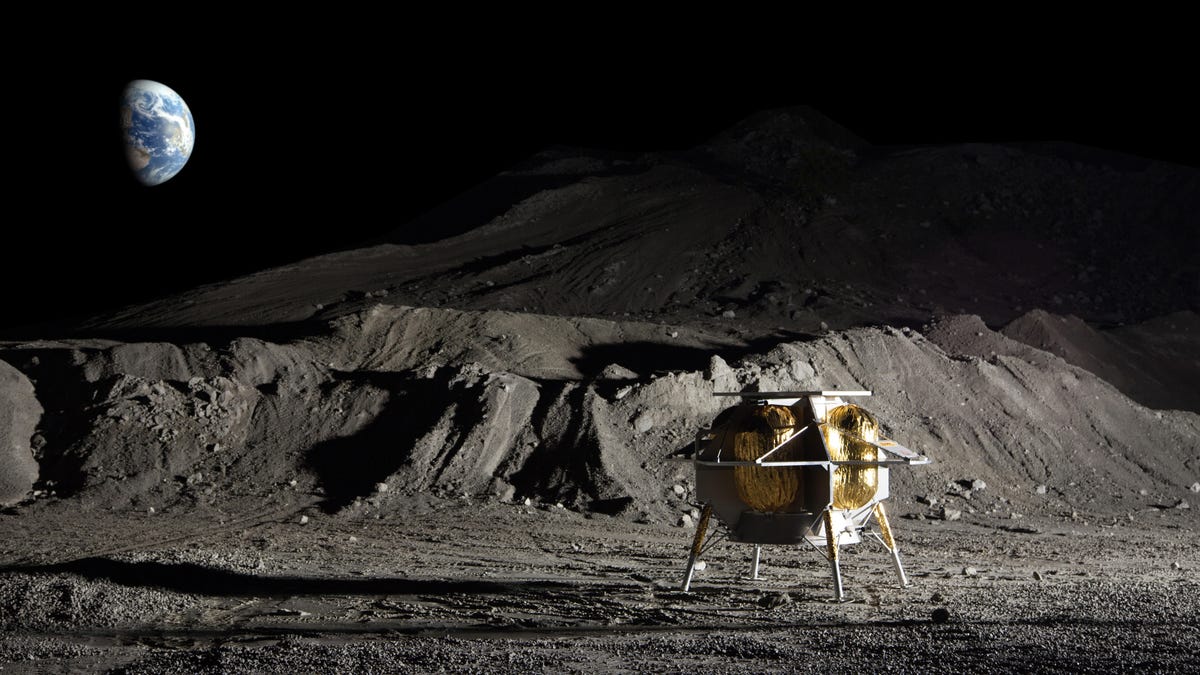NASA has nine new ways to deliver payloads to the moon
With the help of private companies, NASA hopes to start sending science experiments as soon as next year to pave the way for the return of astronauts.
NASA has plans to go back to the moon to stay, but it has no intention of going it alone.
At a press conference Thursday, the space agency's administrator, Jim Bridenstine, introduced nine private companies that have been chosen to help send small science payloads to the moon in the coming years.
NASA regularly awards contracts to private companies for work on its various missions. But the newly announced contracts for the Commercial Lunar Payload Services Program came with a ceremony and extra fanfare given the newly energized push to return to the moon with help from private companies under the Trump administration.
"This is a response to the science community who has for a long time decided that we needed to do science on the surface of the moon," Bridenstine said.
The exact moon missions and payloads that the private companies will be assisting with isn't yet clear. Rather, NASA says the nine US companies will be eligible to bid delivery services for getting science payloads to the moon. In other words, what really happened today is NASA announced a list of companies it'll consider hiring to take stuff to the moon over the next decade.
"They will compete for tasks that we'll put out in the weeks and months from now," explained Thomas Zurbuchen, head of NASA's Science Mission Directorate, during the press conference.
The nine companies NASA hopes to use as lunar couriers are Astrobotic Technology, Deep Space Systems, Draper, Firefly Aerospace, Intuitive Machines, Lockheed Martin Space, Masten Space Systems, Moon Express and Orbit Beyond.
Notably, Astrobotic, Moon Express and Orbit Beyond have their origins in the Google Lunar X Prize, which ended without a winner reaching the moon. Deep Space Systems, Lockheed Martin, Draper and Masten Space are veteran space contractors, while Intuitive Machines and FireFly are newer to the scene.
"In conjunction with our Beta launch vehicle and our partnership with Intuitive Machines, Firefly will provide an integrated lunar services offering, from the launch pad to the surface of the moon," said Firefly CEO Tom Markusic via email.
NASA says the commercial lunar payloads could fly on launch vehicles chosen by one or more of the new contractors as soon as 2019. The hope is that the first missions will demonstrate the technology needed to develop future landers, identify resources on the moon and eventually put new footsteps on the surface.
"We want to go back with humans and actually use those resources," Zurbuchen said.
NASA turns 60: The space agency has taken humanity farther than anyone else, and it has plans to go further.
CNET's Holiday Gift Guide: The place to find the best tech gifts for 2018.


